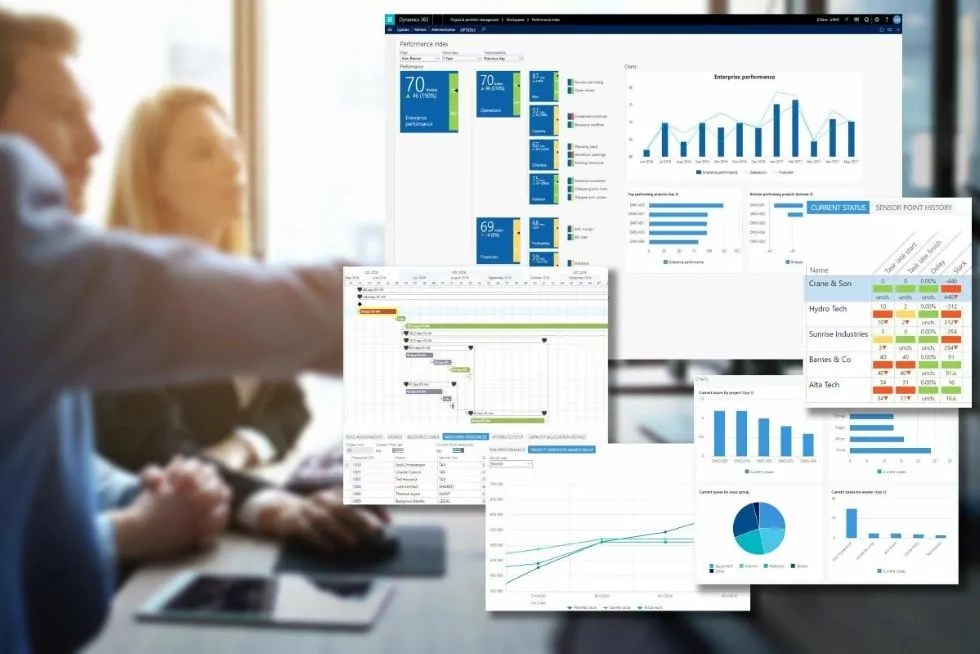A Project ERP or Project-Based ERP is an Enterprise Resource Planning system (ERP) designed specifically for companies who consider projects an important part of their business.
Who Uses Project ERP?
Any company, regardless of industry, where projects matter to their business. Many companies that operate the majority of their business in projects include architecture, engineering & construction, project-based (ETO) manufacturing, aerospace and defense, professional services, and many others. These companies are typically referred to as project-based since they provide their products and services to their customer directly through projects.
Rex Moore, an electrical engineer and construction company uses Project Business Automation to turn its ERP into a Project ERP.
There are, however, other types of companies including retail, distribution, pharma, manufacturing, and others that manage projects internally within the company. Almost every medium-to-large enterprise has the need to integrate their projects with the rest of their business in terms of costs and the value delivered. Many of these companies have project-based divisions or significant capital projects that require project business management.
Project ERP vs. Traditional ERP
Traditional ERP solutions were originally designed for industries with high-volume, repeatable processes. They are effective in business industries where it’s easy to apply technology to standardized processes and data in order to automate and accelerate production.
For companies that deliver projects externally to their customers or manage projects internally, there are unique challenges as a result of non-standard business practices. Traditional ERP components do not support the needs of these companies by providing the level of automation and visibility they need to be successful.
Problems with Traditional ERP for Managing Projects
Oftentimes, many companies end up employing an additional 10 to 15 different applications to manage their project business processes. For the most part, the majority of their information and processes are managed in spreadsheets. As a result, these companies have to employ controllers and data processes to manually translate, consolidate, and validate large amounts of project data from these different business systems.
This manual integration process can result in mistakes and delays, ultimately resulting in making important decisions based on unreliable data.
Why Project Business Automation is Better than Project ERP
While Project Business Automation is similar in concept to project ERP, PBA is more precise in its definition as a new category of software solutions designed to integrate, systemize and automate project business processes.
Download the Quick Guide to Project Business Automation
The market need for PBA did grow directly out of the ERP industry. While ERP is a viable solution for some companies, it does very little to encompass the process management needs of companies that consider projects to be a big and vital part of their business.
PBA manages all project business processes in one system, essentially creating a viable ERP addition for many companies. It’s the only solution available that puts projects front and center, integrating both the business and operational aspects of projects together in real time.












